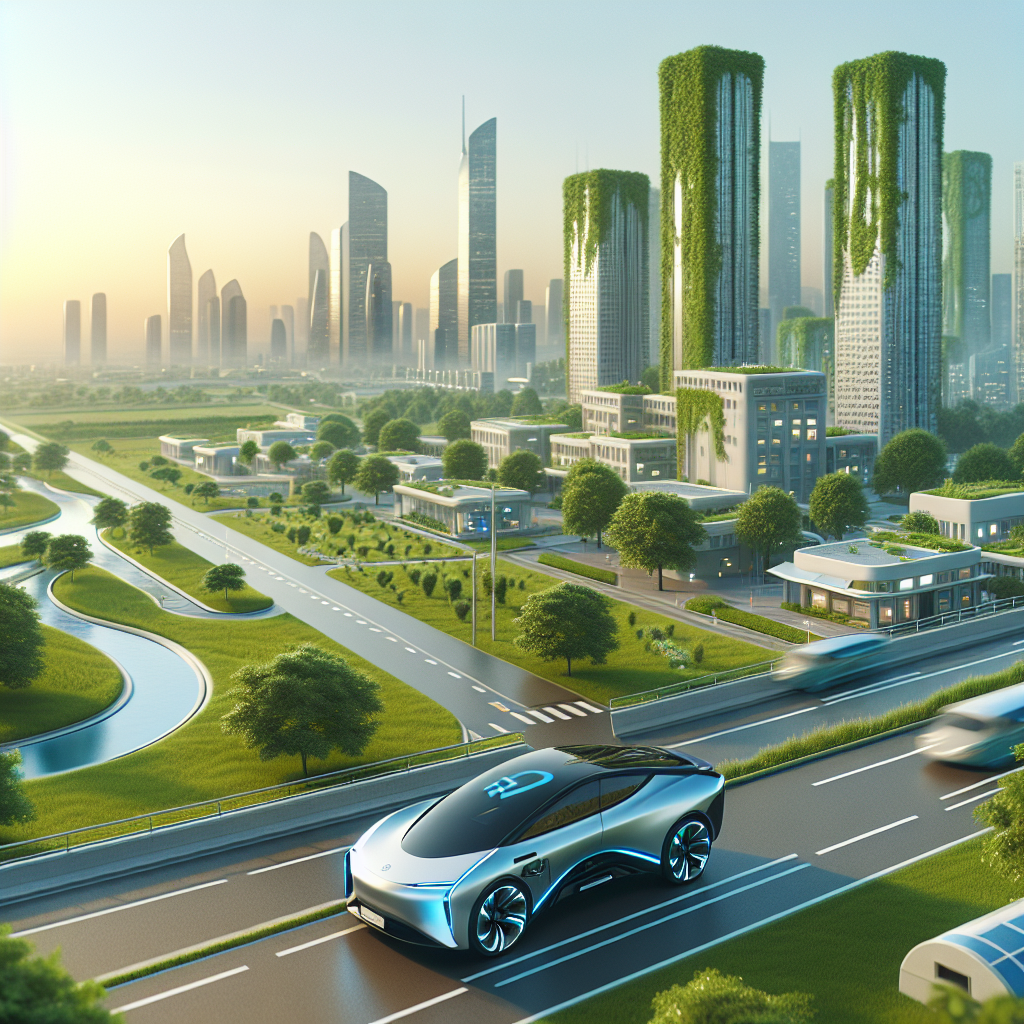Hydrogen Cars: A Viable Alternative for a Sustainable Future?
In the quest for sustainable and environmentally friendly alternatives to fossil fuel-powered vehicles, hydrogen cars have emerged as a potential solution. These vehicles, which run on hydrogen fuel cells, promise to revolutionize our transportation system by offering a clean, efficient, and sustainable option. But how viable are hydrogen cars for the future, and what makes them stand out in the crowded field of alternative energy vehicles? Let’s dive into the world of hydrogen cars to understand their potential as a sustainable transportation option.
The Basics of Hydrogen Fuel Technology
Hydrogen fuel cell technology is at the heart of hydrogen cars. Unlike conventional cars that burn fuel in an engine, hydrogen vehicles use a fuel cell to convert hydrogen gas into electricity, which then powers the car’s electric motor. The only by-product of this process is water vapor, making these vehicles zero-emission and environmentally friendly.
Advantages of Hydrogen Cars
1. Zero Emissions: The most significant advantage of hydrogen cars is their environmental impact. By only emitting water vapor, they help reduce the carbon footprint and combat air pollution, contributing to cleaner air and a healthier planet.
2. Efficiency: Hydrogen fuel cells are more efficient than traditional combustion engines. They convert fuel into energy at a higher rate, resulting in better fuel economy and longer driving ranges.
3. Rapid Refueling: Unlike electric vehicles, which can take several hours to charge, hydrogen cars can be refueled in just a few minutes, offering convenience and time-saving benefits similar to traditional gasoline vehicles.
4. Sustainable Production: Hydrogen can be produced from various renewable resources, including water, making it a potentially sustainable fuel source if produced using green energy.
Challenges Facing Hydrogen Cars
Despite their advantages, several challenges need to be addressed to make hydrogen cars a viable and widespread option:
1. Infrastructure: A significant barrier to the adoption of hydrogen vehicles is the lack of refueling infrastructure. Building a comprehensive network of hydrogen fueling stations is expensive and time-consuming.
2. Cost: Hydrogen fuel cell vehicles and the hydrogen fuel itself are currently more expensive than their gasoline and battery-electric counterparts, largely due to the high costs of fuel cell production and hydrogen production.
3. Hydrogen Production: Most hydrogen is currently produced from natural gas, a process that emits carbon dioxide. For hydrogen cars to be truly sustainable, hydrogen must be produced using renewable energy sources.
4. Public Perception and Awareness: Many people are unfamiliar with hydrogen fuel technology, and there may be concerns about safety and viability. Increasing public awareness and confidence is crucial for wider adoption.
The Future of Hydrogen Cars
For hydrogen cars to become a dominant force in the future of transportation, several developments must occur. Investment in infrastructure is critical, with government incentives and partnerships with private companies likely to play a key role. Advances in technology that reduce the cost of fuel cells and green hydrogen production will also be essential. As these challenges are addressed, hydrogen cars could become a more attractive option for consumers and businesses alike.
Hydrogen Cars vs. Electric Vehicles
While electric vehicles (EVs) are currently the more prominent alternative to gasoline cars, hydrogen cars offer distinct advantages, particularly in terms of refueling time and driving range. However, EVs benefit from a more established charging infrastructure and lower vehicle costs. The choice between hydrogen cars and EVs may ultimately come down to specific needs and availability of refueling or charging options.
FAQs
Q: Are hydrogen cars safe?
A: Yes, hydrogen cars are designed with multiple safety features to handle hydrogen fuel safely. The tanks used to store hydrogen are incredibly durable, and extensive testing has shown that hydrogen vehicles are as safe as conventional cars.
Q: How far can hydrogen cars travel on a single tank?
A: Hydrogen cars typically have a driving range of 300 to 400 miles on a full tank, comparable to many gasoline vehicles and longer than many electric vehicles.
Q: How does the cost of hydrogen fuel compare to gasoline?
A: Currently, hydrogen fuel is more expensive than gasoline on a per-mile basis, but advances in technology and increased production could reduce costs over time.
Q: Can hydrogen fuel be produced sustainably?
A: Yes, hydrogen can be produced using renewable energy sources through electrolysis of water, making it a potentially sustainable and clean fuel option.
Q: What are the main obstacles to the widespread adoption of hydrogen cars?
A: The primary obstacles include the lack of refueling infrastructure, the high cost of vehicles and fuel, and the need for sustainable hydrogen production methods.
Conclusion
Hydrogen cars offer a promising alternative for a sustainable future, with the potential to provide zero-emission transportation and reduce our reliance on fossil fuels. While challenges remain, advances in technology, infrastructure development, and increased awareness could pave the way for hydrogen vehicles to play a significant role in the future of transportation. As the world moves towards cleaner energy solutions, hydrogen cars stand out as a viable and exciting option.

